-
Featured News
Marianne Faithfull 1946-2025
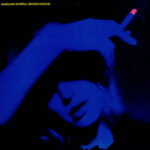 By Harvey Kubernik
Singer, songwriter, actress and author Marianne Faithfull passed away on January 30, 2025.
In 2000 I discussed Faithfull with her first record producer Andrew Loog Oldham, the 1
By Harvey Kubernik
Singer, songwriter, actress and author Marianne Faithfull passed away on January 30, 2025.
In 2000 I discussed Faithfull with her first record producer Andrew Loog Oldham, the 1 -
Featured Articles
The Beatles: Their Hollywood and Los Angeles Connection
 By Harvey Kubernik
JUST RELEASED are two new installments of the Beatles’ recorded history, revised editions of two compilation albums often seen as the definitive introduction to their work.
Or
By Harvey Kubernik
JUST RELEASED are two new installments of the Beatles’ recorded history, revised editions of two compilation albums often seen as the definitive introduction to their work.
Or -
Greg Shaw: A Hero for Zeros
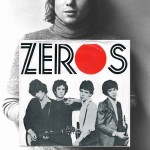
By Mike Stax
Greg Shaw (1949-2004) should need no introduction here. After rolling out one of the seminal rock fanzines, Who Put the Bomp (and its late ‘60s predecessor Mojo Navigator), he founded Bomp Records in 1974, one of the most respected independent labels of the era, releasing records by the likes of the Flamin’ Groovies, Devo, the Weirdos, DMZ, Iggy & the Stooges, and a band from Chula Vista, California called the Zeros.
Part of Southern California’s first wave of punk rock bands, the Zeros released two singles on Shaw’s label: “Wimp” b/w “Don’t Push Me Around” in 1977, and “Beat Your Heart Out” b/w “Wild Weekend.” Both are widely regarded as among the best American punk singles of the late ‘70s. The Zeros’ place in rock ‘n’ roll history was already etched in stone by the time the original band broke up around 1981.
So ten years later, having recently releasing an LP anthology of the band’s recordings, Shaw was surprised to receive a letter from some high-powered Beverly Hills attorneys threatening legal action because the name “Zeros” infringed on the “statutory and common law rights” of their clients, a new band of apparently uninformed LA metal douche-bags who were calling themselves… the Zeros.
Greg was never one to concern himself with legal niceties so he took to his typewriter and bashed out a response in short order. It’s classic Greg Shaw.
“Our Zeros record is a repackage of classic late ‘70s tracks by one of the founder bands of the LA music scene, active 1977-81,” he helpfully pointed out. “The band you represent, on the other hand, are upstarts of recent years, whose use of the name is possible only by the forbearance of those who bear the rights of original usage. Moreover, your lot are well known as low-brow glam metal posers, whose music in no way resembles that of the original Zeros, and the packaging of the respective albums bears this out.”
After some more bon mots, Shaw concludes: “I really wouldn’t worry about it, guys. Our record sold about 600 copies. Your Beverly Hills lifestyles are not threatened.”
He signed off: “Yours for rock & roll.”
The original Zeros—Javier Escovedo, Robert Lopez, Hector Penalosa and Baba Chenelle—continue to be musically active in various forms. Escovedo recently released a new album, Kicked Out of Eden. Lopez is world famous as El Vez. Penalosa plays with the Baja Bugs. And various configurations of ex-members still play occasionally as the Zeros.
On the other hand, the “low-brow glam metal posers,” to the best of my knowledge, were never heard from again—at least not in that form. •
Both letters are reproduced here for your pleasure by permission of Suzy Shaw at Bomp Records.
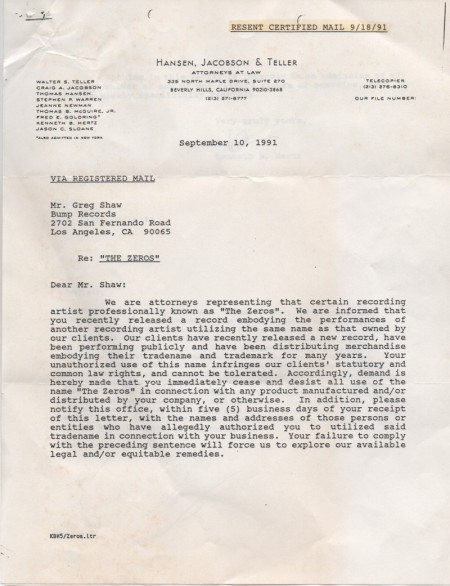
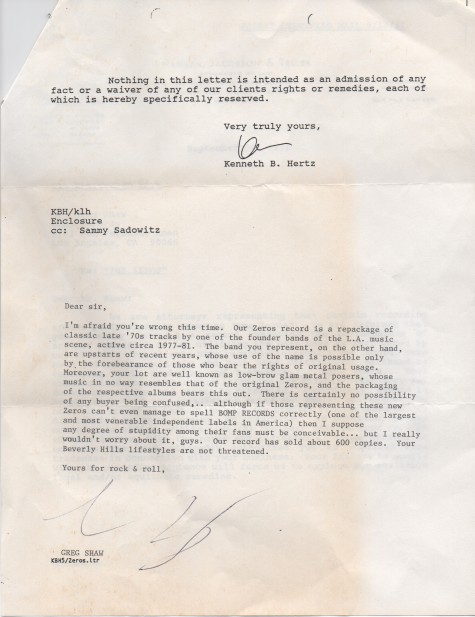
Screaming Lord Sutch: An interview with a raving loony
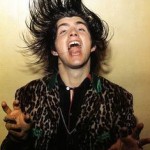
by Mike Stax
When David Sutch took his own life in June 1999 the world of rock ’n’ roll lost one of its wildest and most unforgettable characters. As Screaming Lord Sutch, his colorful, larger than life personality was a fixture of the British political landscape, but for rock’n’roll fans he will be remembered for his amazing recorded legacy: the mad rock and horror sides he cut with Joe Meek, the demented mid-‘60s gems like “Train Kept A-Rollin’” and “All Black and Hairy,” the proto-psychedelic “The Cheat,” the hard rockin’ Heavy Friends… For someone with no discernible music talent he sure made a lot of great records. And if you make great records you live forever.
In April 1993 I interviewed Lord Sutch by telephone for a two-part feature in the Union Jack newspaper. It was a memorable chat. Sutch was a charming, down-to-earth man, with an in-built, infectious sense of humor. Within a few minutes it was obvious my carefully prepared list of questions was out the window. Sutch talked a mile a minute, determined to cover all the highlights of his career, specifically: precise election results and of course the name of every single one of the famous players who’d passed through the ranks of the Savages (“my musicians,” as he called them). Between our chuckling, I made intermittent attempts to direct the flow of conversation, but there was little point, Sutch was on a roll, dashing down tangential side alleys and free-associating memories as the whim took him. Who was I to stop him in his tracks to clarify the smaller facts? It was all entertaining stuff – just let the tape roll.
Caveat emptor: As anyone who has read his autobiography, Life as Sutch, can tell you, historical accuracy wasn’t Sutch’s strong suit, entertaining people was. Some of Sutch’s tales involve a certain degree of exaggeration or misconception. All quite innocent, but bear it in mind as you read.
• • •
An Interview with Jimmy Walker of the Knickerbockers
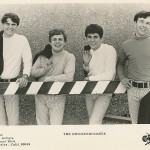
By Katy Levy
So, if you don’t mind, let’s go back right at the beginning… You are originally from the East Coast, is it true that you were born in the Bronx?
This is true! I’m from New York.
How was it like when you grew up?
When I lived in the Bronx, well… growing up there was kind of interesting. It is New York and it is one of the most interesting places on the planet. There’s so much to do and see and I was an avid sports fan so I could go to see the New York Yankees play. I played a lot of sports myself. There were a lot of outlets for that and also for music. I used to go downtown to Manhattan with friends and we’d go to Birdland and other jazz places and watch the really great musicians play. I think that people who come from New York, if they take advantage of it, are around some of the greatest situations in the world, best musicians and artists. Because people from other places, other states, other countries go to New York to act and play, to study music and study writing. So you have the advantage of people coming to your city, bringing their talent with them and you don’t have to travel very much. It’s a melting pot. So, I think that was really cool. I mean, you’ve got great stuff like museums, the Natural History, the New York Public Library on 2nd Avenue. You’ve got the zoo; the best zoo in the world is in the Bronx… the Bronx Zoo. You’ve got all kind of places that you can go and take advantage of for educational purposes and just to broaden your views of the world.
I feel that was the greatest part about growing up in New York… It had its disadvantages. In my neighborhood it started to get tough! There were a lot of gangs started to come up in the late ‘50s. That’s when it was starting to get downright dangerous. That was the disadvantage of being a teenager in a dangerous neighborhood, you really had to watch yourself. But you know, it makes you street smart!
Do you come from a musical background or are you the only artist in the family?
The only person in the family who had any musical ability was my dad, he could sing really well. And he could play the drums, same as me.
Well, actually my next question was about your discovery of the drums, where it came from, what attracted you to that particular instrument. So it came from your dad?
Yeah! I think if you have a talent, at least me at a very early age – I was maybe seven or eight years old – you just naturally gravitate towards it. I watched drummers on television. My uncle was a musicologist and a copyist for the army band at West Point. He bought me my first snare drum and sticks and brushes when I was nine. He was also a kind of saxophone player and even in our first little jam session in my house, my uncle pulled out his saxophone and we started playing old swing stuff. He noticed and said that I had an unusual gift for it. So even at an early age, it was just totally natural for me to be able to play the drums. I couldn’t understand why everybody couldn’t do it!
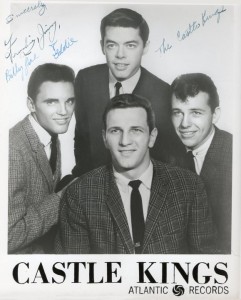
So, before you joined the Knickerbockers, you were in a New York band called the Castle Kings. What sort of music did you play?
Yeah! Well you know, the street doo-wop, rock ’n’ roll, Elvis, Carl Perkins, Jerry Lee Lewis, the Isley Brothers, Little Richard – the early rock ’n’ roll stuff. One late afternoon, we were standing outside in front of Atlantic Records. We just had a meeting with Dot Records, they were in the same building as Atlantic. So we’re standing outside, harmonizing, waiting for one of the guys’ dad to pick us up – this is a true story – harmonizing to some goofy song that one of the guys in the band wrote and Ahmet Ertegun, the president of Atlantic Records, heard us and told us to meet him the next day. So we did! He actually signed us to a contract and we recorded three or four records. I was recording with some of the legends of the business. People like Phil Spector, Ahmet Ertegun and his brother Nesuhi. These guys were legends and we were in the studio with them and I didn’t know who they were! So I mean, at a very early age, we were doing things with the heavyweights of the business and we didn’t even know it.
Apart from being an amazing drummer, you also sing… Is it true you that you joined the Knickerbockers because of that extra talent and why were they looking for a drummer who could sing?
They were looking for a drummer and the first time I saw the Knickerbockers was in a neighborhood venue. It was a supermarket that had been emptied, sold-out and it was reopened to do a little party on Memorial Day. I was walking down the street and I heard this music so I went back and they were set up playing as a trio. Buddy, the saxophone player was playing the drums, really well, and I thought, boy this is a band I’d love to play with! A couple of weeks or months later, they called me up because they’d heard I was a drummer and that I was looking for work. So I went and set up in John and Beau’s house and we played, but my drumming skills were a little bit on the amateur side because I was still young. Then they asked me to sing, I sang some rock ’n’ roll stuff and John and Beau’s mum heard me sing and she said “Hire that guy, he does sound good”! So my skills with drumming didn’t get me the work, it was the singing. Then I improved as a drummer because you get to play a lot. Also, Buddy taught me a lot of stuff on the drums that he got from other good drummers. But it was actually my voice that got me the job.